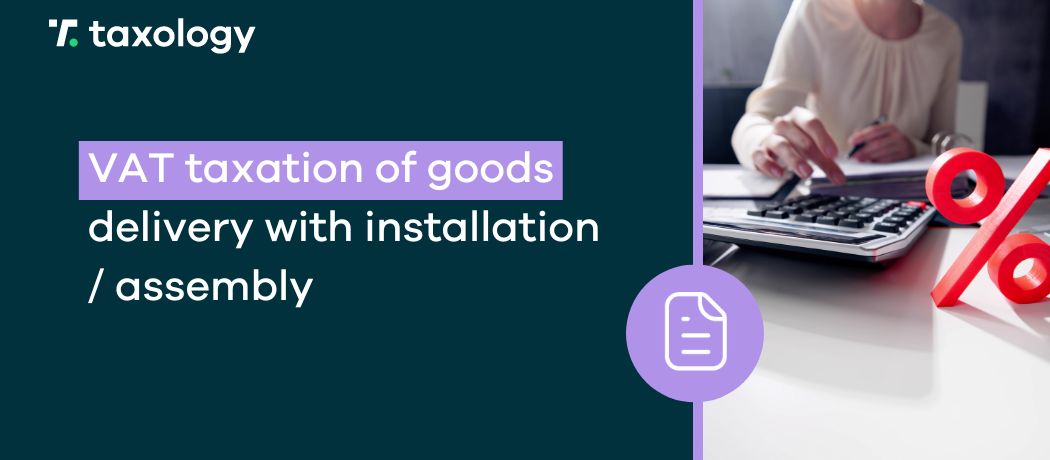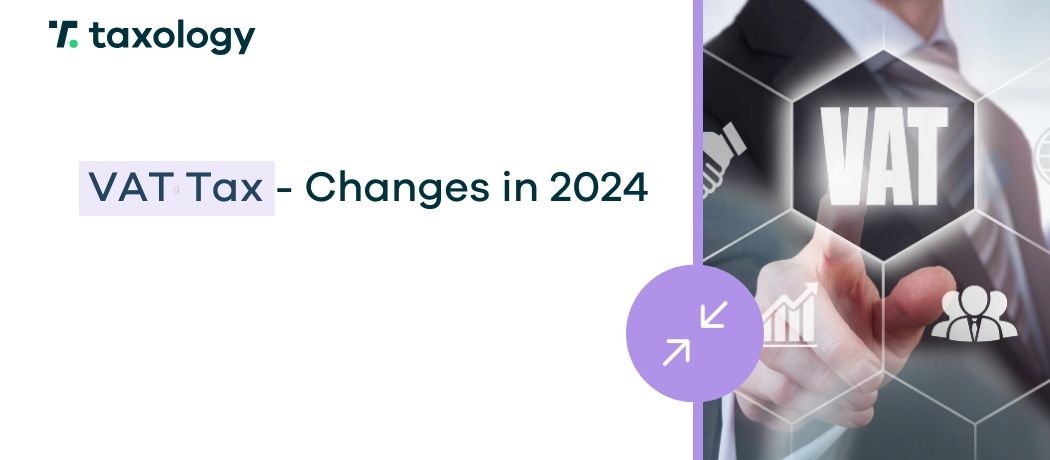Ordering furniture with delivery services or electrical and/or electronic devices along with the installation of the device is a common comprehensive service offered by many companies. However, when it comes […]
Read in: 3 minVAT France 2024
- Last update: 04.01.2024
- Published: 14.10.2020
- Read in: 4 min
VAT in France is called the taxe sur la valeur ajoutée – short for TVA and has been in force since 1954. There are 5 VAT rates in France. The basic VAT rate in France is 20% and applies to all goods and services that are not subject to reduced rates.
Value-added tax (PTU) is a value-added tax, in other words, an increase in the value of goods as a result of a production or service creation process. VAT is an indirect tax, collected at each successive stage of trade in goods or services. VAT applies to both sellers and buyers of goods and services, as its value is added to the net value of the transaction.
VAT in France
VAT in France is called the taxe sur la valeur ajoutée – short for TVA and has been in force since 1954. There are 5 VAT rates in France. The basic VAT rate in France is 20% and applies to all goods and services that are not subject to reduced rates. In addition, in France, there are four reduced VAT rates: 10%, 5.5%, 2.1% and 0%.
The VAT rate in France of 10% applies
- Unprocessed agricultural products
- Overhauls to raise the standard of apartments
- Social housing
- Firewood
- Transportation of persons
French VAT rate of 5% applies
- Food products
- Books
- Electricity
- Gas
VAT rate 2.1% in France
- State-funded medicines (Securité Sociale)
- Sale of live animals for slaughter
- Some cultural events
- Some press releases
French VAT invoice requirements
Intra-Community and international transport (excluding road and inland waterway transport)
France – 0 (zero) VAT rate
There are two types of VAT identification numbers in France. Each of them has a different meaning and format.
SIRET or SIREN? VAT identification number in France
This number is issued by the Statistical Office (INSEE). The SIREN consists of 9 digits, the first 8 digits being random, and the last digit is a check digit – e.g. 123456789
SIREN number
The SIRET number consists of 14 digits. The first 9 digits are the SIREN number and the next 5 digits are the NIC (Numéro Interne de Classement). The SIRET number contains information about the company’s location in France. The VAT-EU number in France is the SIREN number preceded by the prefix FR and two control digits, e.g. FR00123456789.
SIRET number
VAT invoices in France must be issued at the time of a taxable supply. They must be kept for six years. Invoices must contain at least the following basic information:
- Date of issue
- Unique number
- Full supplier and customer addresses
- Supplier’s VAT number
- Details of the quantity of goods
- Unit prices
- Date of delivery (if different from the invoice date)
- Full description of services or goods supplied
- The net value of the supply subject to taxation
- Applied VAT rates
- Amount of VAT broken down into rates
- Total gross invoice amount
VAT settlement in France is strongly linked to the type of business activity that is carried out by an entrepreneur based in another EU country, as well as to the amount of annual distance sales to France. VAT is settled monthly or quarterly if the annual tax liability does not exceed EUR 4,000.
VAT returns in this country must be submitted by the 19th day of the month following the end of the tax period. Payment must be made by direct debit. In addition, the entrepreneur should register VAT in France if their company:
- Sells goods from France to other European Union countries
- Sells goods to private individuals through Amazon/E-Bay platforms
- Imports goods to France
- Keeps goods in stock in France for more than three months
- Organizes events in France
When should I register for VAT in France?
The French are very conservative as opposed to even the German tax offices, and interest is expected to be charged on late filings and payments for tax obligations. Failure to account for their income on time results in the imposition of penalties by the French tax office.
The penalty for late payment is a 10% increase in the amount of the liability. It does not apply to taxes on office and commercial premises and warehouses, where a delay in settlement increases the liability by 5%.
In addition to the VAT declaration, foreign companies operating in France may be required to report Intrastat statistics. It contains information on the import or export of goods between countries belonging to the European Community, as well as on the movement of their own goods to a warehouse located in another member state.
The Intrastat threshold for imports and exports is EUR 460,000. The monthly Intrastat report should be submitted by the 10th day of the following month.
Penalties and VAT interest in France
The address of the French tax office responsible for matters relating to other European Union countries is:
Direction des Résidents à l’Etranger et des Services Généraux (DRESG)
Service des Impôts des Entreprises Etrangères (SIEE)
10 rue du Centre
TSA 20011 93465
NOISY LE GRAND Cedex
The internet address that may be helpful for VAT purposes in France is www.impots.gouv.fr. You can contact the office at +33 157 33 85 00 – in French only.
Want to register for VAT in France? >> Contact us




